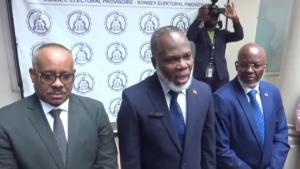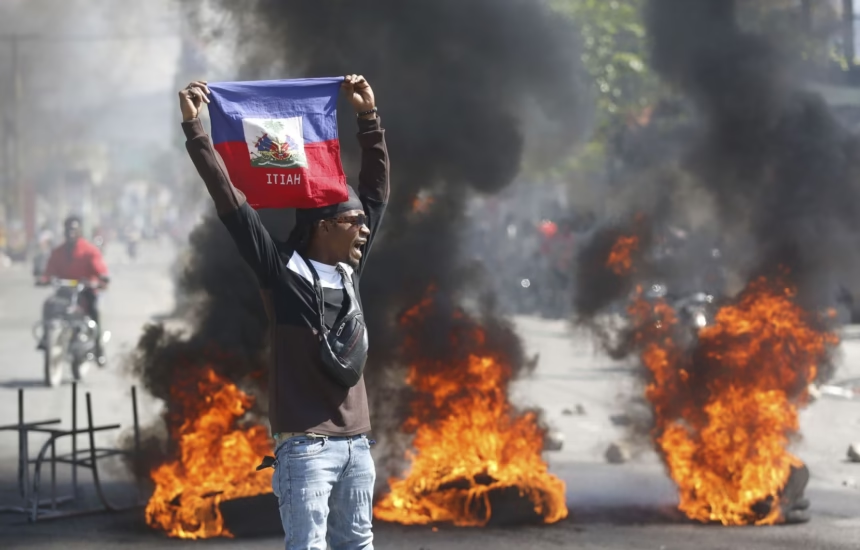Haiti’s Transitional Presidential Council (CPT) will step down on February 7, 2026, to allow the installation of a new president and end the current transitional mandate.
The announcement was made on Friday by council president Louis Gérald Gilles during an official visit to the headquarters of the Provisional Electoral Council (CEP) in Pétion-Ville, alongside fellow council members Emmanuel Vertiliaire and Frisnel Joseph.
Gilles told reporters that, “Even after the departure of the Transitional Presidential Council, the electoral process will continue until the next elections.” He added that there would be “no institutional vacuum,” even though no broad political consensus has yet been reached on how the country will be governed after the transition ends.
Frisnel Joseph, who oversees electoral affairs within the CPT, reiterated that the council’s mandate would expire on February 7, 2026, in accordance with the April 3, 2024, political accord that established the transitional authority. He clarified, “It’s not too late to start the process,” and stressed that even if elections are not held before February 7, the critical task is for the council to formally initiate the electoral process before stepping down.
The visit by CPT members came one day after the Provisional Electoral Council announced it had shared a draft of the new electoral decree with political parties for consultation. In an official statement, the CEP invited political parties and civil society organizations to collect a physical copy of the draft and to submit their comments and recommendations between October 31 and November 10. The council stated that the initiative aims “to ensure transparency in the process and encourage participation by all stakeholders.” It reaffirmed its “commitment to conducting the electoral process independently,” while noting the security challenges affecting daily operations and institutions.
During a radio interview on Friday, CEP President Jacques Desrosiers confirmed that elections could not realistically be organized before the CPT’s departure on February 7, 2026. He cited the deteriorating security situation, noting, “It is now impossible to hold elections before February 7.” He pointed to the widespread control of urban and rural areas by heavily armed gangs, ongoing violence, and the inability of the Haitian National Police to guarantee safety—all of which make organizing credible elections virtually impossible under current conditions.
Despite these challenges, CPT officials insist that the groundwork for elections must begin immediately. According to Joseph, the council is awaiting the completion and transmission of the draft electoral decree, following consultations between October 31 and November 10, before formally adopting it in the Council of Ministers. This step would provide the legal framework for future elections, which may take place after the CPT’s mandate ends in February 2026.
The situation reflects Haiti’s ongoing political and institutional uncertainty as the transition approaches its conclusion. With succession plans still unclear and the security environment deteriorating, concerns exist about a potential extended period of transition. Analysts note that addressing public order issues remains fundamental to starting the electoral process, and that the legitimacy of future governments depends on these conditions.








